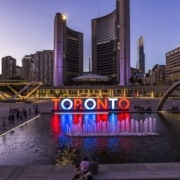Which Airbnb Rules Should Be Addressed Before Listing The Property On The Airbnb Platform?
Mastering the Art of Hosting on Airbnb: A Comprehensive Guide for Starters
The Airbnb platform has registered a quick acceptance and tremendous growth across the different countries of the world. It has changed the way people have been traveling until now, which is nothing short of a revolution for the tourism industry. Today, people who have extra space at their properties or spare accommodations are not hesitant to use the Airbnb platform to make some quick and easy money. Maybe you have done so too. But before registering, have you checked the local laws and Airbnb rules to ensure that you comply with all the regulations?
For those of you who have no idea of what we are talking about, we guess, the answer is “No”. Being an Airbnb host is a great thing, but if you want to hold on to this title for long, then you must follow Airbnb rules. As an Airbnb host and/or manager, you should realize that it is significant to understand and follow the laws of your city, state, country, and the province as the Airbnb rules and regulations frequently rely upon these laws for short term rentals. Since the local laws vary from place to place, therefore, the Airbnb regulations are also different at different locations.
That said, there are still some ground rules that stay the same for every property and location. You can use them as the starting point to figure out if your listing falls in line with the laws. However, once you have determined your listing is right, and within the limits of these Airbnb rules, we will recommend you to still run it once with your local authorities before being absolutely certain.
What are these Airbnb rules that your listing should comply with?
Before listing your rental on the Airbnb platform, here are some Airbnb rules that you should consider.
Check the Airbnb short-term rental rules in your area
In order to list your property on Airbnb, your first step should be to check the local rules and regulations in the context of short term rentals in your area. For this purpose, you should visit the local Airbnb help pages that are designed to offer some preliminary guidance on Airbnb rules. On these pages, you can look for sections titled “what regulations apply to my city” or “Airbnb rules and regulation in _______(your Country)” to discover some answers. However, in case your research comes up empty, and you find no relevant information about the rules in your city, then you should visit the local government offices. The authorities there should be able to help you with the guidelines of short rentals.
See what the taxation rules state
The taxation rules are different in different countries. In some locations, the law states that Airbnb should collect and pay the local occupancy tax over on the behalf of the host, while in some other states, the host is required to collect the overnight stay tax and pay it to the jurisdiction on their own. You may need to get a tax registration number to manage the tax remittance. For more information in this regard, you should contact a lawyer. Also, it is worth noting that even if the taxation rules are not strictly a part of Airbnb rules, yet it is mandatory to follow them.
Submit all the required licenses and permits
Many places in North America require you to arrange certain licenses and permits before you become an Airbnb host. You have to gather all the documents that may include, business license, land use permit, lodger license, and the TOT certificate, and only after that, you will be legally permitted to operate your Airbnb business. Now, even if these documents may or may not be required, still as a host you should note that there is no difference between renting a room on your property and having numerous properties listed on Airbnb. For both these scenarios, the documents and permits that will be needed will probably stay the same according to the Airbnb rules.
Check out the building and housing standards
In certain jurisdictions, the government has created some rules and regulations that people need to meet regarding building standards. These rules usually have to do with the minimum construction, maintenance standards, strength, and design of the building or house. These rules may or may not be relevant to the Airbnb listing depending upon your area but you should still check them out to avoid any future complications.
Comply with the insurance and safety rules
Airbnb takes the safety and security of its guests very seriously. Hence, in order to ensure that the guests don’t face any issues, it makes it necessary for the hosts to comply with certain guidelines. Such Airbnb rules or guidelines are usually very generic, like having a smoke detector at your property or ensuring that your place is fitted with a fire extinguisher to see that the guests remain safe in case any mishap does take place. Thus, before listing, you should get the necessary renovations completed and obtain Airbnb insurance to stay on the right side of the Airbnb rules. Doing so will also keep you safe from the legal point of view in case any emergency arises at your property.
Unmasking Airbnb Insurance Misconceptions: What Hosts Need To Know
Don’t make any false claims about your property
Airbnb is very strict about its content policy. The platform clearly establishes that it in favour of accuracy and honesty in the actions and conduct of its hosts and that straying away from that path will have negative consequences for hosts. Thus, the hosts should be careful about following these guidelines. While listing the property, they should make sure to only mention honest details in the descriptions and titles. That said, if any host goes overboard in describing its properties and issues false photos, description, or title of the place, then according to the Airbnb rules, such misleading listing will be removed from the platform.
Place some value in your building’s rules
According to the Airbnb rules, apart from complying with the local and state laws, the host should also take care not to disregard the community and residential rules. This is to say, that if you have certain regulations in your community, then you should abide by them. Your apartment or building rules should not be ignored by having Airbnb guests at your place. So, for example, consider if your building has a ‘no pet’ policy or if playing loud music there after 10 o’clock is prohibited, then you should cover such things in your house rules, so there is no trouble in the future.
Conclusion
Rules and regulations are an important part of the Airbnb conduct. The platform strictly suggests all its hosts do a thorough research of the local laws and residential regulations before listing the property on the Airbnb platform. Doing so will keep you protected, or else, you might get charged with a fine. Hence, it is a safe bet to take the Airbnb rules into account before listing a property. However, in case you have any doubts or you are unsure about something, contact your local authorities or the Airbnb platform to get the right guidance.











